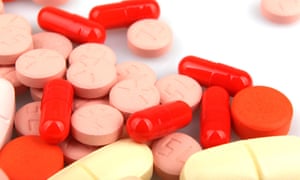- Moderator
- #121
- 8 902
- 25 816
Jak się już mocno zataczasz, to trudno ci pigułki ze stołu zebrać.
I w jaki niby sposób MDMA ma leczyć z alkoholizmu? Jaki jest mechanizm?

“We earmarked £3,500 for our 12g of MDMA [but] we are now looking at £62,000 for the 12g,” he said.
World's first trials of MDMA to treat alcohol addiction set to begin
Imperial College London scientists expect to give first dose in the next two months alongside psychotherapy

‘We know MDMA works really well in helping people who have suffered trauma and it helps to build empathy,’ said Ben Sessa. Photograph: RM/Alamy Stock Photo
Shares
25k
Comments
242
Hannah DevlinScience correspondent
@hannahdev
Friday 30 June 2017 17.55 BSTLast modified on Friday 30 June 2017 20.47 BST
Doctors in Bristol are set to begin the world’s first clinical study into the use of MDMA to treat alcohol addiction.
Researchers are testing whether a few doses of the drug, in conjunction with psychotherapy, could help patients overcome addiction more effectively than conventional treatments. The small trial was granted ethical approval a few weeks ago and the team expects to give the first dose of MDMA, the active ingredient in ecstasy pills, within the next two months.
Ben Sessa, a clinical psychiatrist on the trial and senior research fellow at Imperial College London said: “We know that MDMA works really well in helping people who have suffered trauma and it helps to build empathy. Many of my patients who are alcoholics have suffered some sort of trauma in their past and this plays a role in their addiction.”
Breaking Convention conference in London. “The chances of relapse for these patients are really high – 90% at three years. No one has ever given MDMA to treat alcoholism before.”
After the patients have undergone physical detox, they will be given two standard therapy sessions without the drug, followed by an all-day session where they are given a high dose of MDMA in capsule form. During this session they will spend some time talking to a therapist and some time lying down with an eyemask in a state of quiet meditation.
Sessa said the only thing delaying the start of the trial was the delivery of the drug to the hospital after a lengthy manufacturing and testing process, designed to ensure the drug is 99.99% pure.
“We earmarked £3,500 for our 12g of MDMA [but] we are now looking at £62,000 for the 12g,” he said.
Sessa said a misconception is that the treatment is “all about the drug”. “It’s using drugs to enhance the relationship between the therapist and the patient, and it allows us to dig down and get to the heart of the problems that drive long-term mental illness,” he said.
The trial, led by scientists at Imperial College London, will aim to assess the safety of the treatment and give a preliminary indication of whether the therapy might hold therapeutic promise.
It comes at a time of rapidly increasing interest in the use of psychedelics in medicine. One US study published last year produced remarkable results when people with advanced cancer who were suffering depression and anxiety were treated with a single high dose of psilocybin, the active ingredient in magic mushrooms. In 80% of cases, the patients’ condition improved and the effects endured for six to eight months.
Another US team, which has now been given approval to push ahead with a phase-three trial, found that MDMA-enhanced therapy was highly effective for treating post-traumatic stress disorder (PTSD) in veterans. In Britain, several teams are investigating the potential of using ketamine to erase addiction-related memories.
“This is not a fringe subject, it’s careful, methodical, extremely rigorous science,” said Sessa.
Others were less enthusiastic, however. Ed Day, a senior clinical lecturer at the National Addiction Centre at King’s College London, said that a priority should be restoring funding to frontline addiction services. “Psychedelics are fascinating substances, and have a range of effects that we are nowhere near understanding,” he said.
“Research would be welcome, but it is likely that the benefits would come in treating problems such as post-traumatic stress or severe depression, rather than drug problems per se. I wouldn’t want this issue to distract from the real problems facing drug and alcohol treatment services in England at the moment.”
czyli uzależnieniu fizycznym
Hm, właśnie uświadomiłem sobie że nie do końca wiem co to takiego.
Namiętnym użytkownikiem
wspaniały mózg dodatkowo stymulowany kokainą!
było ekstraktem liści koki w czerwonym winie i zawierało do 100 mg czystej kokainy w kieliszku.
Dyskusyjne, na jakim poziomie jest kokainowe pobudzenie u namiętnego użytkownika takiego wina.
Wina? Trzy razy więcej, a niewykluczone że 100 lat temu były jeszcze większe.Przeciętny kieliszek ma z reguły 50 ml
Wina? Trzy razy więcej, a niewykluczone że 100 lat temu były jeszcze większe.
Półlitrowe kieliszki do wina?
100 mg to niewielka kreska nawet jak dla początkującego,
Nie, wapisałem że większe niż dzisiejsze standardowe 150 ml.
btw. http://www.ikea.com/pl/pl/catalog/categories/departments/eating/18870/